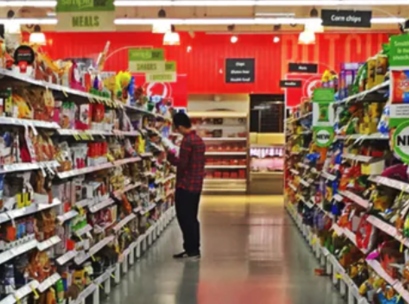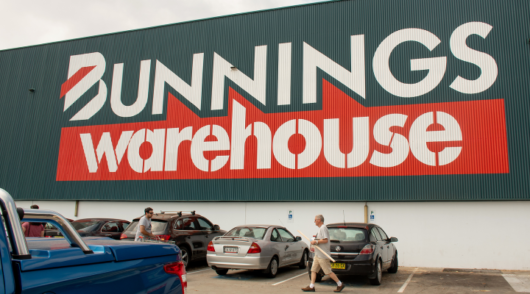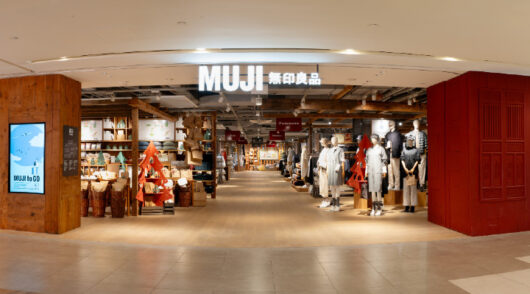 The shock announcement last week that Australian entrepreneurial icon Dick Smith will phase out his foods brand over the next 12 months was met with multiple responses by the public and broader business communities.
The shock announcement last week that Australian entrepreneurial icon Dick Smith will phase out his foods brand over the next 12 months was met with multiple responses by the public and broader business communities.
While some are mourning the death of another Australian-made brand; others have shown skepticism towards Smith’s claim that German-owned Aldi was the main contributor to the company’s woes.
Others point out the the hypocrisy of a man who made his first millions off the back of cheap, imported electronics, only to now blame the international market entrant’s destabilising potential.
The “writing was on the wall” for Dick Smith Foods, Smith told IRW, when Aldi was voted the ‘most trusted brand in Australia’ by Roy Morgan, ahead of Australian staples such as Dairy Farmers, Bega and Qantas.
“It’s one of the most difficult decisions I’ve ever made, and it’s one of the saddest days in my life,” said Smith.
“It’s very sad, because I think it’s very important to help our farmers, and in this particular case I’ve failed.”
However, while the statements made by Smith over the decision were often patriotic, they were also perhaps a bit hyperbolic.
In a letter sent to the heads of Coles, Woolworths and Metcash, Smith noted that he had always predicted that Aldi would be incredibly successful in Australia, but that it was now clear they would completely change the face of retailing Down Under.
“It won’t just be Aldi, it will be Costco and Amazon as well,” says Smith.
“These companies do not share the wealth with Aussie employees in a way that has been traditional in our country.
“I believe it is imperative that your companies [Woolworths, Coles and Metcash] stay in business. It looks as if the only way you can do this is by matching Aldi as far as possible, dramatically reducing staff levels and reducing your product range.
Meanwhile, a Coles spokesperson tells IRW the company was “very sorry to learn of this development,” adding that they had stocked Dick Smith Food products for many years.
Are Australian supermarkets doomed?
Queensland University of Technology’s Professor Gary Mortimer disagrees with Smith’s assertion that larger supermarkets will no longer be able to compete with leaner international entrants.
“I think Aldi is a very different offer than a full-line Coles and Woolworths supermarket,” Mortimer tells IRW.
“Aldi has [approximately] 1600 lines available. The majority of these are private label products made under contract manufacturing, which means Aldi owns the intellectual property and, accordingly, can sell them at a lower price.”
However, not everyone buys private label products, notes Mortimer; many consumers still want to buy Coca-Cola, Sanitarium Weet-bix and Cadbury Dairy Milk Chocolate.
Woolworths echoes this sentiment with a company spokesperson asserting the company believes in providing choice to its customers, and “is proud to offer a wide range of products to meet different customer needs”.
“More and more of our customers tell us that a one-size-fits-all approach to supermarket ranging doesn’t deliver what they want or need,” says the spokesperson.
“It’s why our long-term vision is to broaden the range of products we carry across our network, so we can deliver more tailored and locally relevant ranges for our customers in their local store.”
Mortimer notes that Aldi’s model, while effective, doesn’t compare in this regard.
“The supermarkets have that area captured. Coles and Woolworths have a broader range of fresh foods, butchers, delicatessens, strong service areas and a broader range of products,” says Mortimer.
“I don’t think we’ll ever see Coles and Woolworths moving to an Aldi model…there’s certainly room in Australia for a discounter model, as well as a full-line, traditional supermarket [model].”
Instead, Mortimer posits that the reason for Dick Smith Foods falling profits was that the 13 products it produced were potentially lost in a sea of approximately 20,000 lines in today’s modern supermarkets.
“Coles and Woolworths sell those products in their stores, [and are] certainly passionate about support for Aussie farmers and Aussie-owned brands, but I think the end game is that Australian shoppers are now very focused on price,” he says.
This is not due to being unpatriotic, but due to the rising cost of living outpacing growth in wages. Increases in the cost of housing, fuel, electricity, and insurances have pushed many consumers to save money wherever they can; and, generally, they can save money at the supermarket.
“I think Australian shoppers have a strong positive intention to buy Australian made, Australian-owned brands,” notes Mortimer, “But when faced with lower priced alternatives in the supermarket they tend to be swayed by price.”
Aldi – Australia’s discount king
After seeing Smith’s claims about the Aldi business model, Tom Daunt, CEO of Aldi Australia, doubled down in support of what the company had accomplished during the 17 years it has been in the Australian market.
“We are proud of the reputation we have built and feel strongly that the recognition we have earned as Australia’s most trusted brand is a result of our commitment to openness, honesty and integrity in all our dealings,” said Daunt in a response sent to media outlets.
“Simple, responsible, consistent – this is how we conduct our business operations. As a privately-owned business we have never sought to maximise profits at the cost of something else. Rather, we opts for long-term sustainable growth strategies.”
Daunt went on to note that the company’s international heritage and global presence is no secret after Smith accused Aldi’s German owners – siblings Karl Albrecht Jr and Beate Heister – of keeping the private company’s wealth for themselves rather than sharing it as a public company does.
He also noted there were clear intentions for Aldi’s Australian branch; “to supply great quality products at affordable prices. We do this by adopting a business model that is different to our competitors.”
While Mortimer does believe there is room for both discount and full-line supermarkets to exist in the Australian ecosystem, there will be growing pains.
“As we see more and more foreign players moving into the market, prices will continue to fall,” said Mortimer, referencing the impending arrival of German discount grocer Kaufland, expected to open its first Australian stores in 2019.
“That means existing incumbent retailers need to really consider the effectiveness of their businesses. That may not necessarily mean reducing staff, but just looking at their back of house and operational costs.”





